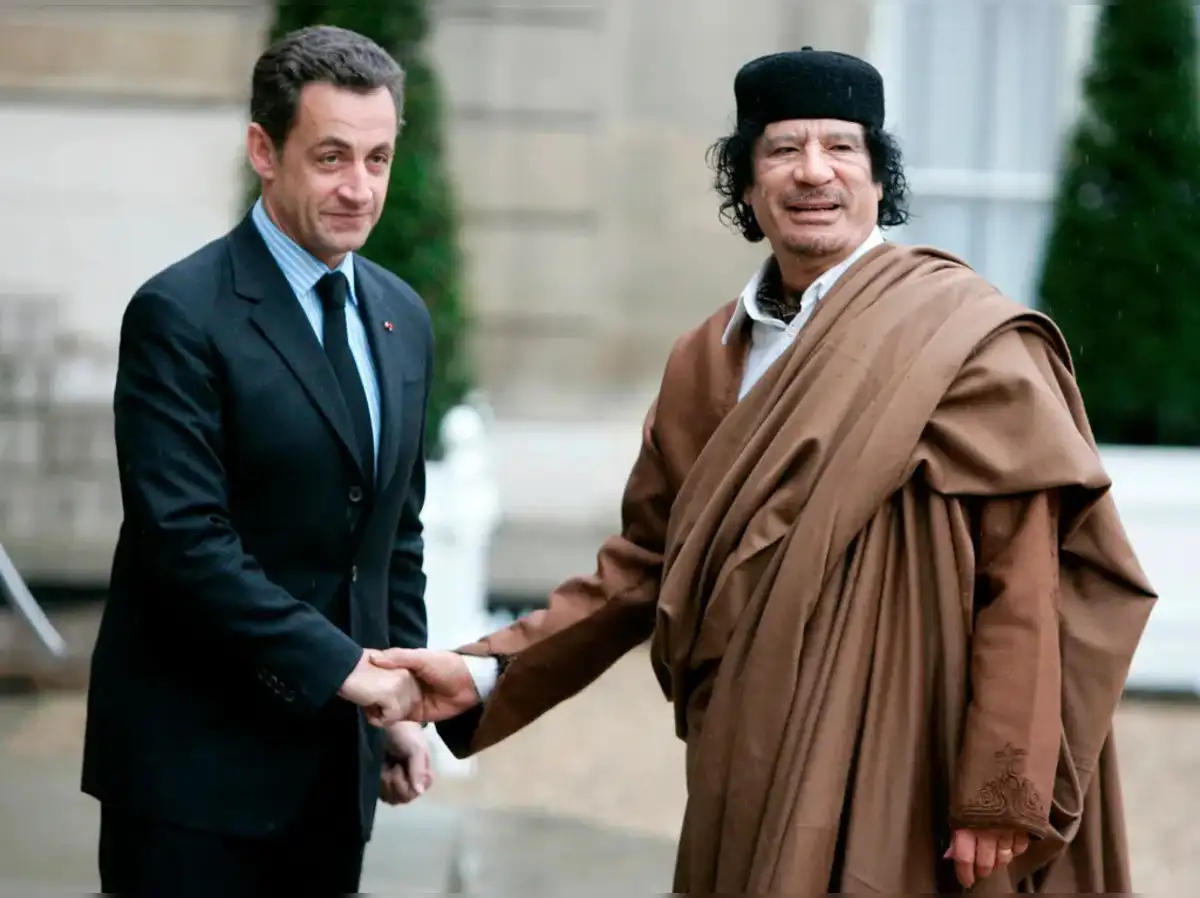In a dramatic turn that has shaken France’s political establishment, former President Nicolas Sarkozy has been sentenced to prison after being found guilty of receiving illegal campaign funds from the regime of the late Libyan dictator Muammar Gaddafi. The landmark ruling by a Paris court marks the first time in modern French history that a former head of state has been convicted over foreign campaign financing, laying bare a web of corruption that stretches from the Élysée Palace to Tripoli.
The court concluded that Sarkozy’s 2007 presidential campaign — which swept him into power amid promises of reform and renewed French leadership — was tainted by millions of euros in illicit cash secretly funneled from Gaddafi’s government. The ruling described the scheme as a “systemic breach of democratic integrity,” orchestrated through covert channels involving Libyan officials, businessmen, and intermediaries who delivered large sums of money in cash to Sarkozy’s associates.
A Scandal That Refused to Die
The allegations first emerged in 2012, when French investigative site Mediapart published documents suggesting that Sarkozy’s campaign had accepted up to €50 million from Libya. At the time, Sarkozy dismissed the claims as “grotesque lies.” However, over the years, multiple testimonies, banking records, and seized documents painted a darker picture — one that investigators spent more than a decade unraveling.
According to the court’s findings, several key figures connected to both Sarkozy’s team and Gaddafi’s inner circle facilitated the illegal transfers. These included intermediaries who reportedly carried suitcases stuffed with cash to Paris, as well as financial operatives who laundered funds through offshore accounts. The money was allegedly used to cover campaign expenses, rallies, and media operations that helped secure Sarkozy’s narrow victory in the 2007 election.
Sarkozy’s Defense and Denials
Throughout the lengthy investigation, Sarkozy vehemently denied all accusations, portraying himself as the victim of political persecution. He argued that the case was built on fabricated evidence and motivated by a desire to tarnish his legacy. “There is not a single euro of Libyan money,” he told the court earlier this year. “I have never betrayed my country, and I never will.”
His defense team claimed that the testimonies of Libyan officials, some of whom were detained or facing charges themselves, lacked credibility. They also criticized investigators for what they described as “judicial zeal” and “media manipulation.” Yet despite these claims, the court found the evidence compelling, citing a pattern of concealed transactions and corroborating statements that linked Sarkozy’s campaign finances to Libyan sources.
The Legal and Political Fallout
The verdict adds to Sarkozy’s growing list of legal troubles. He has already been convicted in two separate cases: one for corruption and influence peddling, and another for exceeding campaign spending limits in 2012. With this new ruling, the once-celebrated leader faces the most severe consequences yet.
Legal experts say Sarkozy could face a multi-year sentence, part of which may be served under house arrest or through electronic monitoring, depending on his appeal. French law allows for reduced or suspended sentences in certain cases, but the court’s strong wording suggests little leniency.
Politically, the judgment sends shockwaves through France’s conservative establishment. Sarkozy remains an influential figure in the Les Républicains party, and many within the French right had long hoped for his political comeback. That possibility now seems remote, as the conviction effectively closes the door on any future ambitions.
Libya’s Shadow Over French Politics
The case has also reignited debate over France’s involvement with Libya during the late 2000s. Sarkozy famously hosted Muammar Gaddafi in Paris in 2007, just months after his election — a state visit that drew heavy criticism for its lavish reception. Four years later, Sarkozy played a key role in NATO’s 2011 military intervention that helped topple Gaddafi’s regime.
Prosecutors argued that this sequence of events demonstrated a cynical political relationship: first accepting financial help from Gaddafi, then later turning against him to reassert France’s moral and geopolitical stance. The court stopped short of confirming this motive but noted the “deep irony” of the situation.
A Lesson in Accountability
For many in France, the ruling represents more than the downfall of one politician — it is a statement about the rule of law and the limits of political immunity. “This verdict is not just about Sarkozy,” said one French legal analyst. “It’s about whether power in France can still be held accountable when it crosses ethical and legal lines.”
The public reaction has been sharply divided. Supporters of Sarkozy insist he has been unfairly targeted by left-leaning judges, while others see the decision as a long-overdue reckoning. Across social media, the verdict has sparked heated debates about corruption, foreign interference, and the credibility of the French justice system.
What Comes Next
Sarkozy’s lawyers have already announced plans to appeal the conviction, calling the verdict “an affront to justice.” The appeals process could take months or even years, meaning that the former president might not immediately begin serving his sentence. Nonetheless, the damage to his reputation is irreversible.
As France looks ahead to its next election cycle, the Sarkozy case serves as a cautionary tale about the intersection of money, power, and politics. It underscores how international relationships — even those forged under the banner of diplomacy — can conceal deep ethical compromises.
Once hailed as a modernizer who promised to rejuvenate French politics, Nicolas Sarkozy now stands as a stark symbol of how ambition and secrecy can erode public trust. His fall from grace, cemented by this conviction, marks one of the most dramatic political collapses in recent French history.
















Leave a Reply